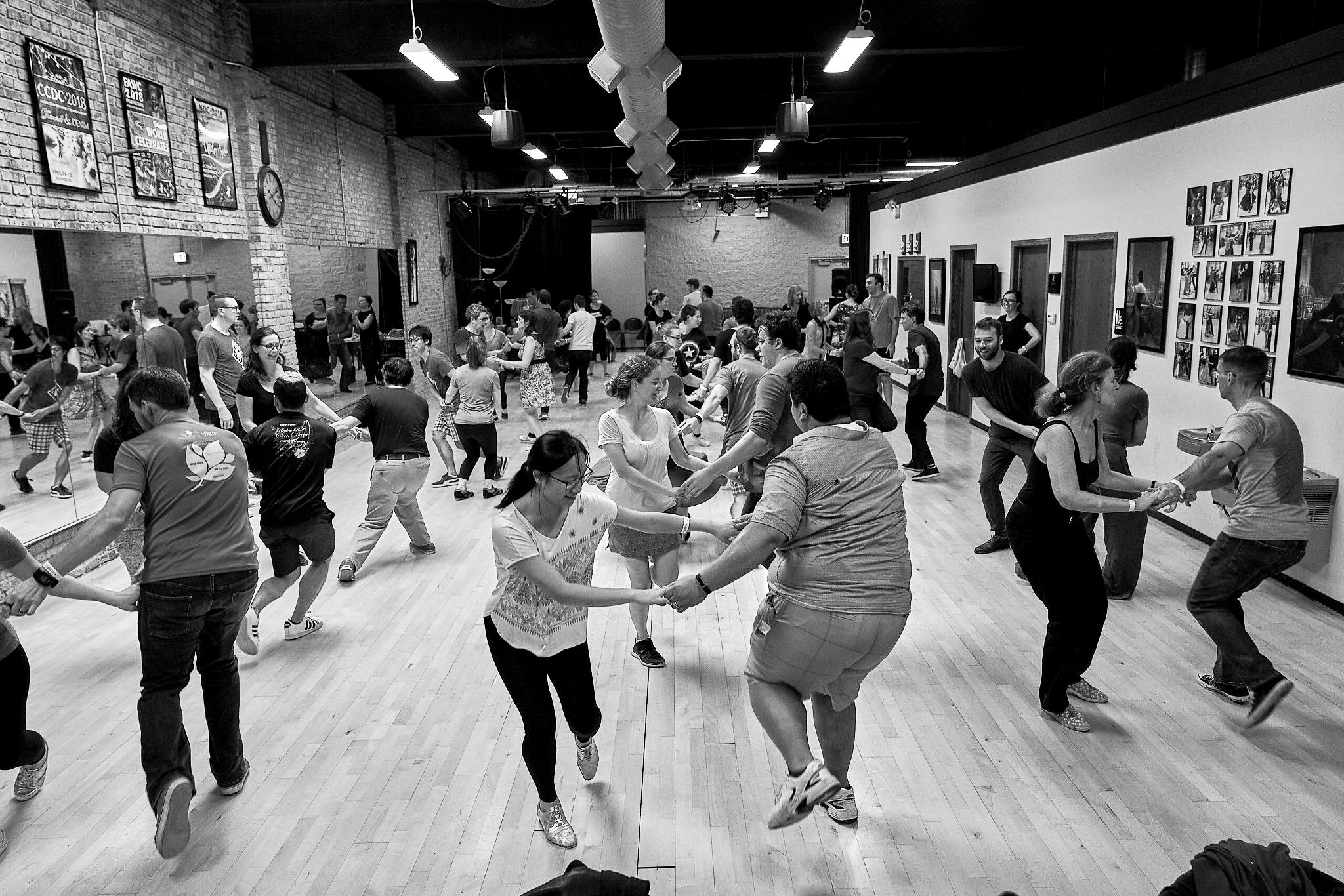
Traffic Jam! Sessions
4-Week Group Classes
Group Classes
Frequently Asked Questions
We've compiled some of our commonly asked questions, hopefully you'll find what you're looking for here! If not, contact us!
-
Absolutely! Many of our students start with zero dance experience. Lindy Hop and swing are beginner-friendly, social, and a great foundation for learning other partner dances later on.
-
We’ve outlined our classes on the Class Sequence page, but if you’re new to swing dancing, you should start with our 101 introduction course.
If you’ve been dancing swing or Lindy Hop for awhile, but haven’t taken any of our classes, schedule a 30-minute instructor evaluation so we can help determine your eligibility for our classes with pre-requisites.
After completing an instructor evaluation, you will receive a $20 discount towards your recommended class.
-
Check our our Class Sequence page for more information about the order our classes follow!
-
Starting in July 2025, our classes will all be held at our new location at 4043 N. Ravenswood Ave #115, Chicago, IL 60613!
-
Our 4-week group classes are sold as a single product, and we do not offer discounts based on individual student availability. We always review what we did the previous week, and will make sure we get you caught up.
-
We offer full refunds for cancellations up to 48 hours before the first day of your class. Check our class policies page for more information.
-
The general answer is no, especially for the Beginner level classes. Our classes are progressive which means they build on the material from week to week. Students who miss the 1st week usually have a harder time and less fun which is the opposite of what we want. We strive for less hard, more fun.
-
No. We work hard to ensure there's a good balance between leads and follows in each class, so joining a class in a future month will disrupt that balance for the students that signed up for that month's class. Except for our beginner class, our class topics rotate monthly. Therefore, making up a week in one class won't prepare you for the same week in another class at the same level.
-
Swing dancing is a group of dances that were danced to jazz music of the 1920s-1940s. Popular dances that survived the era include Lindy Hop, Charleston, Balboa, and Collegiate Shag. These are primarily partnered dances, but there are some dances that are danced solo.
-
Lindy Hop, the most famous swing dance, is an African-American jazz dance born in Harlem, New York City in 1928. It is primarily a partnered social dance, but includes elements of solo dancing, performances and competition.
Lindy Hop evolved from existing swing dances including Charleston, Breakaway, tap and jazz and innovated captivating air steps. Lindy Hop soon began being featured in shows at the famous Cotton Club, world wide tours, and films like A Day at the Races and Hellzapoppin’.
Lindy Hop’s popularity waned from 1950s-1970s as did jazz music, but the dance experienced renewed interest in the 1980s as new dancers coaxed Al Minns and Frankie Manning into teaching Lindy Hop again. The neo-swing music of the 1990s launched Lindy Hop back into the mainstream along with being featured in the movies Swing Kids and Swingers and Gap’s Khakis Swing commercials. Lindy Hop continues to be danced in cities around the world.
-
East Coast Swing or Jitterbug are swing dances based on Lindy Hop. They exclusively use the 6 count basic rhythm of Lindy Hop. They are often taught as an introduction before learning Lindy Hop, but can be danced on their own.
-
Charleston is an African-American jazz dance created in Charleston, South Carolina in the 1920s that predates Lindy Hop. Its inclusion in the 1923 Broadway show Runnin’ Wild helped popularize the dance. Charleston steps were incorporated into Lindy Hop where dancers continued to innovate and create new steps. Charleston today continues to be a part of Lindy Hop and is danced both partnered and solo.
-
Nope! We rotate partners throughout class so you can try things with everyone, which will help you learn how to dance faster. Bonus: you’ll get to meet some nice people!
-
Entirely up to you! Swing dancing is a partner dance, with both partners contributing equally to create something fun and exciting together. Leads generally create signals for their partners, Follows, who in turn react to those signals.
We encourage you to learn whichever role you are most interested in, or even both! For class balance, we do ask that you stick to the role you have signed up for that month.
-
We recommend wearing comfortable clothing you can move in. Classes are active so you might even sweat a little. We recommend flat, comfortable, closed-toe shoes you can turn in. Nothing too slippery and nothing too sticky.

